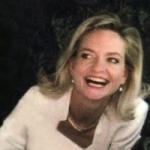The Workplace as Mutual Trust and Recognition Unit
- The trust issue here is we use trust a little bit loosely between us as human beings. It's a systemic mutual trust that we feel at a deep level we simply take for granted if it's there. And that's the thing that we need to put into place with our organization design. But also the managerial practices.
Speaker A The individual relationship I talked about before that we're focused on here as well as the business. It's a two way trusting, working and product activist relationship that's going to get t...
Transcript of the presentation video
NOTE: This transcript of the video was created by AI to enable Google's crawlers to search the video content. It may be expected to be only 96% accurate.
Speaker A The individual relationship I talked about before that we're focused on here as well as the business. It's a two way trusting, working and product activist relationship that's going to get the best out of people. So the two way we say that up front initially and I think it goes over people's heads to start with but eventually and very quickly they feel that two way the nature of the engagement of the relationship, it becomes palpable to them.
Speaker B What also is natural, I think is that weaving of the accountability, clear accountability and engagement that you can be accountable for your team, for the output of your team members. But the only way to be successful in this is to engage your team in such a way that you enable them to do their best work and in so doing you can hold them accountable in a natural way.
Speaker A The trust issue here is we use trust, I think a little bit loosely between us as human beings. And we often use trust. It has a currency. We can take it away or give it or we think we can. We don't refer to trust that way when we're talking about trust in the workplace and we're specifically talking about mutual trust in the way that a car driver going down the road would trust the car coming the opposite way on the other side of the road to stay on that side of the road. It's a systemic mutual trust that we feel at a deep level we simply take for granted if it's there. And that's the thing that we need to put into place with our organization design. But also the managerial practices. The way the manager behaves is part of the organization just as the way a policeman would be a highway system, it's a part of the system. So those managerial practices are part of developing mutual trust. Do I behave consistently? Do all managers behave in a consistent way in this organization and also in.
Speaker B Working across the organization? So for example, where you have a pilot and an air traffic controller the role relationships are very clear. The accountabilities and the authorities of each party they may never see each other, they speak to each other but they may never meet each other. And yet they can work together in a mutual, trust inducing way. Confident and clear that they will do their work safely and accountably each day and every day.
Major organizations and consulting firms that provide Requisite Organization-based services





